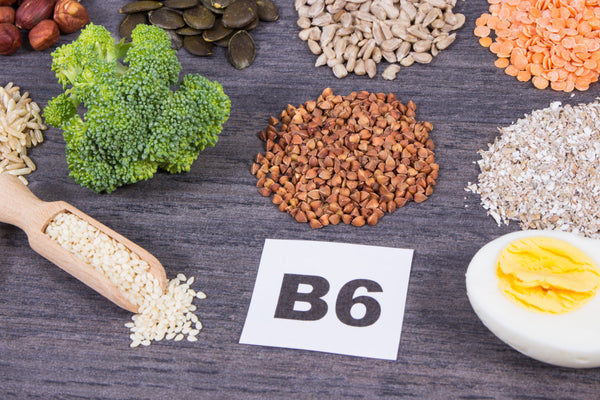
Diarrhea? There is a Chance of Having Celiac Disease

Celiac disease affects at least one percent of those in the United States, or about 3.3 million people. Did you know that most of them go undiagnosed?
The disease can cause distressing and debilitating symptoms that may vary widely between individuals. That's why many people remain undiagnosed.
Celiac Symptoms
1. Diarrhea
This is the most characteristic symptom of celiac disease, and also one of the saddest. It is estimated that about half of adults with celiac disease have diarrhea. It tends to occur more often in children than adults. Following a gluten-free diet can relieve diarrhea.
2. Stomach bloating or cramps
Celiac disease causes inflammation of the lining of the small intestine. Along with bloating and cramping, some people experience intestinal gas and nausea.
3. Weight loss
In people with celiac disease, ingesting gluten damages the villi, which are hair-like projections on the lining of the small intestine.
Nutrients from food are absorbed by the villi. If the villi are damaged, a person cannot absorb nutrients properly and ends up being malnourished, no matter how much they eat. One sign of malnutrition is weight loss.
This is more common in children than adults. It is also possible to be overweight and have celiac disease. Of course not everyone can lose weight.
4. Fatigue
This is a major problem for most celiac sufferers. Fatigue occurs due to nutritional deficiencies as a result of malabsorption. Iron deficiency is very common in celiac and is often the symptom leading to the diagnosis of the condition.
Fatigue also results from chronic inflammation, in which immune cells release a number of inflammatory chemicals whenever a celiac eats gluten. Fatigue can take a long time to resolve.
5. Mood problems
Most people don't see symptoms of depression or anxiety when they think of celiac disease, but they are actually very common. So are brain fog and sleep problems. Nutritional deficiencies and inflammation adversely affect the brain and nerves, increasing the risk of these problems.
If you suspect you have celiac disease, it's important not to guess. Please see your doctor for a proper diagnosis.
How to Cure Celiac Disease
Remove all gluten from your diet
There is no such thing as a low gluten diet. A celiac must eliminate every trace of gluten if they hope to cure the inflammation in their intestines.
Some people also need to eliminate dairy products, legumes and sugar. Foods that may be problematic next are whole grains, eggs, and nightshade vegetables (Capsicum, potatoes, tomatoes, and eggplant). These foods contain a variety of proteins that can inflame the intestinal lining in some people.
Correct Intestinal Imbalance
Dysbiosis means having too much bad bacteria, Candida or other microbes in your gut and not enough good ones. These harmful insects inflame the lining of the intestines and hinder the absorption of nutrients.
It is important to correct this imbalance with herbal anti-parasitic formulas, and with the dietary changes mentioned above. Another common problem is Small Intestinal Bacterial Overgrowth (SIBO).
This means there are too many microbes growing in the small intestine, where it shouldn't. They're not necessarily bad insects, they just live in the wrong places. SIBO generally causes nutritional deficiencies and is strongly associated with restless legs syndrome. Sometimes a low-FODMAP diet is needed to treat SIBO.
Improve Digestive Function
Deficiency of stomach acid, bile and digestive enzymes is almost always present in people with inflamed intestines. It is very important that you digest your food as completely as possible.
This will allow you to absorb the maximum amount of nutrients from food, but there are other reasons too. If you don't digest food properly, it will actually rot or ferment in the intestines.
Undigested carbohydrate residues in particular, will act as food for harmful gut microbes, or promote their growth in the small intestine, creating SIBO and leaky gut.
This waste that is not digested properly will also make you feel unwell. Common symptoms include bloating, gas, foggy head, low mood, anxiety or low motivation. Supplementing with hydrochloric acid, digestive enzymes and cow bile can be very helpful.




